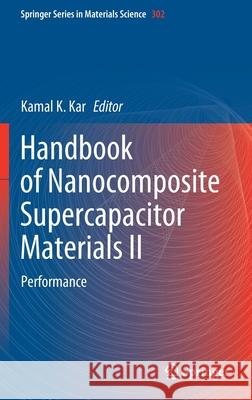Handbook of Nanocomposite Supercapacitor Materials II: Performance » książka
topmenu
Handbook of Nanocomposite Supercapacitor Materials II: Performance
ISBN-13: 9783030523589 / Angielski / Twarda / 2020 / 496 str.
Handbook of Nanocomposite Supercapacitor Materials II: Performance
ISBN-13: 9783030523589 / Angielski / Twarda / 2020 / 496 str.
cena 684,33
(netto: 651,74 VAT: 5%)
Najniższa cena z 30 dni: 655,41
(netto: 651,74 VAT: 5%)
Najniższa cena z 30 dni: 655,41
Termin realizacji zamówienia:
ok. 16-18 dni roboczych.
ok. 16-18 dni roboczych.
Darmowa dostawa!
Kategorie:
Kategorie BISAC:
Wydawca:
Springer
Seria wydawnicza:
Język:
Angielski
ISBN-13:
9783030523589
Rok wydania:
2020
Wydanie:
2020
Numer serii:
000904288
Ilość stron:
496
Waga:
0.90 kg
Wymiary:
23.39 x 15.6 x 2.87
Oprawa:
Twarda
Wolumenów:
01
Dodatkowe informacje:
Wydanie ilustrowane











